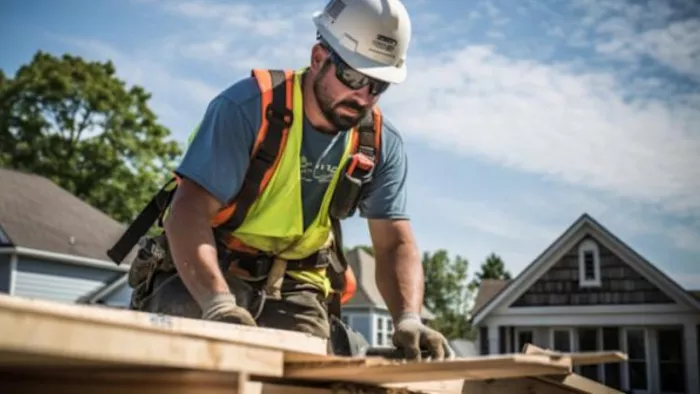
In a world increasingly run by algorithms, automation, and artificial intelligence, it's natural to wonder: Will a robot take my job?
This question fuels countless headlines, but the truth is, not all jobs are replaceable. In fact, some professions are not just resistant to AI, they’re practically immune. Why? Because they hinge on very human traits like empathy, creativity, moral judgment, and complex social interaction, things no AI can truly replicate.
Let’s explore the careers that are future-proof in an AI-driven world and understand why they’re here to stay.
1. Mental Health Professionals
Psychologists, therapists, and counselors
AI can crunch data, recognize patterns, and even mimic conversations, but it cannot feel. Mental health support is rooted in emotional intelligence, non-verbal cues, trust-building, and ethical responsibility.
Why AI can’t replace them, because it requires:
- Emotional depth and human empathy
- Complex case-by-case judgment
- Confidentiality and ethics
- Societal trust in human listeners over chatbots
A survey by Pew Research (2023) revealed that about eight-in-ten U.S. adults (79%) say they would not want to use an AI chatbot if they were seeking mental health support
2. Creative Professionals
Writers, designers, artists, musicians, filmmakers
Yes, AI can generate images, compose songs, and write poems, but not like a human. Real creativity blends experience, emotion, cultural nuance, and originality. Great storytelling, for instance, is often inspired by human struggle, memory, or
humor, not just data.
Why AI can’t replace them, because it requires:
- Creativity stems from lived experience
- Audiences crave authenticity and human perspective
- Originality can’t be trained; it’s felt
- Even platforms like OpenAI acknowledge that AI is a co-pilot, not the creator. Think of it as a paintbrush, not the painter.

3. Skilled Trades
Electricians, plumbers, carpenters, HVAC technicians
Robots might assemble cars, but try sending one to fix a leaking pipe in a 50-year-old house. Skilled trades require manual dexterity, real-world problem-solving, and adaptability. Every house, wiring system, or boiler has quirks that can't be predicted or coded.
Why AI can’t replace them, because it requires:
- Unstructured, unpredictable environments
- Hands-on problem solving
- Physical presence is irreplaceable
4. Teachers and Educators
From kindergarten to university professors
Online courses and AI tutors are useful, but they don’t replace teachers. A teacher does more than deliver facts: they motivate, mentor, adapt to different learning styles, and manage classroom dynamics. Education is as much about human connection as it is about content.
Why AI can’t replace them, because it requires:
- Emotional intelligence and encouragement
- Real-time classroom management
- Adaptability to student needs
- A student remembers a great teacher, not a chatbot that marked their quiz.
5. Healthcare Providers
Doctors, nurses, caregivers, and surgeons
AI assists with diagnosis and treatment plans, but when it comes to bedside manner, empathy, or ethical decisions, humans lead. A nurse comforting a scared patient or a surgeon making a split-second call in the OR, those moments require humanity, not code.
Why AI can’t replace them, because it requires:
- Patient trust and empathy
- Ethical and moral responsibility
- High-stakes decision-making
- As of 2024, studies show that 95% of patients trust human doctors over AI diagnoses, especially for complex conditions.
6. Social Workers & Community Leaders
These roles demand deep engagement with people facing crisis poverty, abuse, addiction, and trauma. It’s messy, emotional, and complex. AI doesn’t do messy well. Real impact comes from human compassion and moral courage.
Why AI can’t replace them, because it requires:
- Navigating nuanced social systems
- Emotional resilience
- Cultural and community intelligence
- No app can advocate for a child’s welfare in court or de-escalate a tense domestic situation with empathy.
7. Legal Professionals
Judges, lawyers, mediators
AI can draft contracts or analyze case law, but it can’t argue in court or interpret justice in gray areas. The law is shaped by societal values, ethics, and precedents. A judge must weigh facts and humanity, not just logic.
Why AI can’t replace them:
- Ethical reasoning and nuance
- Societal trust and legal precedent
- Emotional persuasion in legal settings
- Even the most advanced legal AIs are tools, not replacements, for human judgment.
8. Strategic Leaders and Entrepreneurs
AI can provide insights, but it can’t build vision. Founders, CEOs, and policymakers don’t just solve problems; they imagine new realities. Leadership involves risk-taking, intuition, and motivating humans, things AI isn’t built to do.
Why AI can’t replace them, because it requires:
- Vision-building and foresight
- Strategic ambiguity
- Inspiring and managing human teams
- AI might help run a business, but only humans can dream it up in the first place.
Final Thoughts: Human Advantage Isn’t Going Away
The rise of AI doesn’t signal the end of human jobs; it signals a shift. Jobs that rely on empathy, ethics, imagination, and adaptability will always need a human touch. In fact, as AI grows, so will the demand for deeply human skills.
Instead of fearing AI, the smart move is to focus on what makes us human because those are the traits machines can’t replicate.


Comments